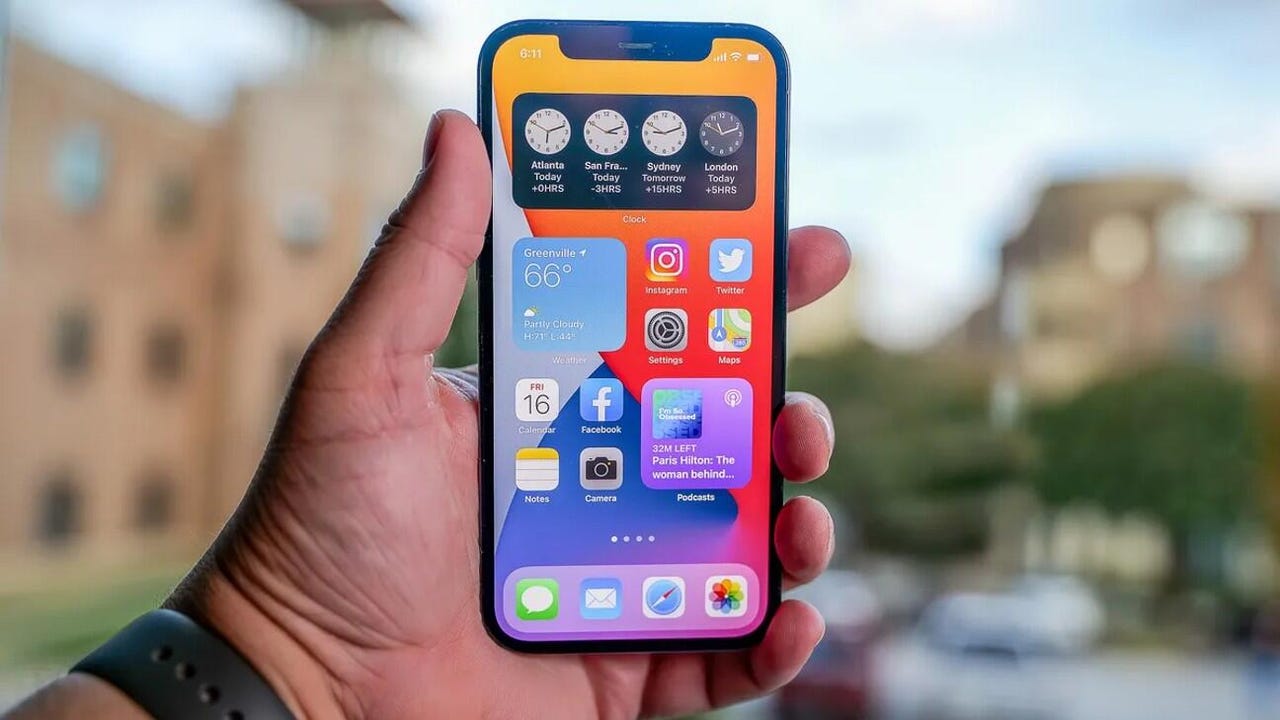
You might have heard the news about how the iPhone 12 has been banned in France because of “radiation” concerns.
Before we go any further, let’s clarify the word radiation. Here, we’re referring to electromagnetic radiation, which encompasses visible light, radio, x-rays, and Wi-Fi and cellular communication.
The story started last week when a French watchdog group responsible for radio frequencies — the ANFR — issued a statement claiming that tests it carried out showed that the iPhone 12 emits more electromagnetic radiation than permitted by the country’s laws. Furthermore, the group said it would “deploy all available means to put an end to the non-compliance.”
Also: iPhone 15 Pro vs. iPhone 14 Pro: Which model should you upgrade to?
The radiation emitted by mobile phones is measured in SAR — Specific Absorption Rate — and tests carried out by the ANFR showed the handset to emit 5.74 watts per kilogram when simulating the phone being held in the hand or kept in a pocket. The EU limit for SAR is 4.0 watts per kilogram for these tests.
While the iPhone 12 is now no longer offered for sale, making a sales ban somewhat moot, the watchdog could go as far as to push for a recall of handsets already sold.
On the flip side, Apple, along with other European regulatory bodies, are downplaying this issue.
Apple says that this is not a safety concern, and goes on to point out that the iPhone 12 — as is the case for all other smartphones — was subjected to and passed an array of tests and certifications around the globe. Apple, however, has said that it will “issue a software update for users in France to accommodate the protocol used by French regulators.”
Ministers in Denmark and Belgium also have voiced support for Apple, saying that they have no concerns.
The bottom line
Safety is important, of course, and having regulators keeping an eye on companies is a vital part of ensuring the safety of consumer devices. It’s also good that this issue has been highlighted and that Apple is working on a patch.
On the other hand, it is important to note that the iPhone 12 is unlikely to pose any risk to users — even at these elevated levels. In fact, a few years ago, these SAR levels would have been considered safe.
Also: The best iPhone models right now: Expert tested and reviewed
Another point of note is that France changed the way that the SAR tests were carried out in 2020, allowing radiation levels to be measured 0 mm from the smartphone, compared to the previous 5mm, which may be why the iPhone is now failing the test.
As for the wider issue of whether smartphones cause cancer or other illnesses, all the scientific studies that I’ve come across so far confirm that these ubiquitous devices pose no health risks.
According to the National Cancer Institute, “there is currently no consistent evidence that non-ionizing radiation increases cancer risk in humans [and that] the only consistently recognized biological effect of radio frequency radiation in humans is heating.”
Smartphones




















